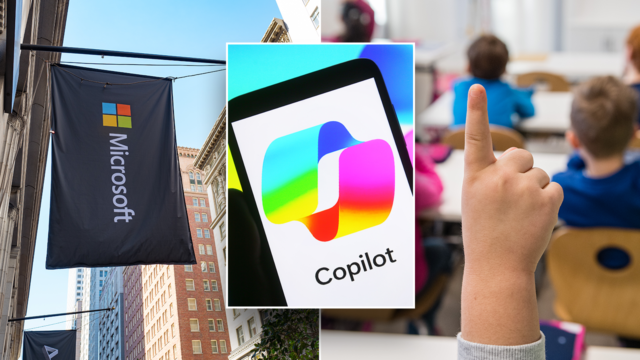
In the age of rapidly advancing artificial intelligence, Microsoft’s AI chatbot Copilot has sparked a debate over the use of AI in teaching sensitive topics to preschool children, including sex education, diversity, equity, inclusion (DEI), and LGBTQ issues.
- Concerns over AI-generated responses: Parents and educators question the appropriateness and accuracy of AI responses to young learners.
- The challenge of filtering content: Ensuring age-appropriate content for preschoolers remains a significant challenge for AI technologies.
- Calls for transparent algorithms: Critics demand more transparency in how AI models are trained and how they generate responses.
- The importance of human oversight: There’s a consensus on the need for human oversight in AI’s educational applications, especially for sensitive topics.
AI technology, like Microsoft’s Copilot, has been lauded for its potential to revolutionize education by providing personalized learning experiences and reducing teachers’ workload. However, its application in discussing sensitive topics with preschoolers has raised eyebrows. Critics argue that AI might not yet be capable of handling the nuances and complexities of topics like sex education, DEI, and LGBTQ issues with the sensitivity and accuracy required for young audiences.
The AI in Education Dilemma
Microsoft Copilot, designed to assist in a variety of tasks, has seen its application expand into education. While its ability to generate creative content and provide instant information is undeniable, its use in teaching preschoolers about sensitive topics is under scrutiny. The main concerns revolve around the chatbot’s ability to deliver age-appropriate and contextually sensitive information without misinterpretation or oversimplification.
Ensuring Age-Appropriate Content
One of the paramount challenges is ensuring that the AI’s responses are suitable for preschool-aged children. This includes not only the complexity of the language used but also the content’s appropriateness. Experts emphasize the importance of developing robust filters and oversight mechanisms to prevent the dissemination of misleading or inappropriate information to young learners.
Transparency and Human Oversight
Transparency in AI’s decision-making processes and the content it generates has been a recurring theme in the discussion. Parents and educators alike call for clear insights into how AI models like Copilot are trained, including the data sources and guidelines used to ensure responses are appropriate for young children. Additionally, the consensus leans towards the necessity of human oversight, where educators can monitor and intervene in the AI’s interactions with students, especially regarding sensitive matters.
Educational Potential vs. Ethical Concerns
Despite these concerns, there is optimism about AI’s potential in education. Proponents argue that with proper guidelines, AI can supplement traditional teaching methods, offering personalized learning experiences that can adapt to each child’s needs and pace. However, navigating the ethical implications of introducing such technology to early education, particularly for sensitive topics, remains a challenge.
As AI continues to evolve, its role in education, especially for young learners, must be approached with caution. The potential benefits of AI like Microsoft Copilot in personalizing education and making learning more accessible are immense. Yet, ensuring that AI interactions are appropriate, sensitive, and beneficial for all students, especially when tackling complex social issues, is crucial. The debate over AI in early education highlights the need for a balanced approach that leverages technology’s strengths while addressing its limitations and ethical considerations.










